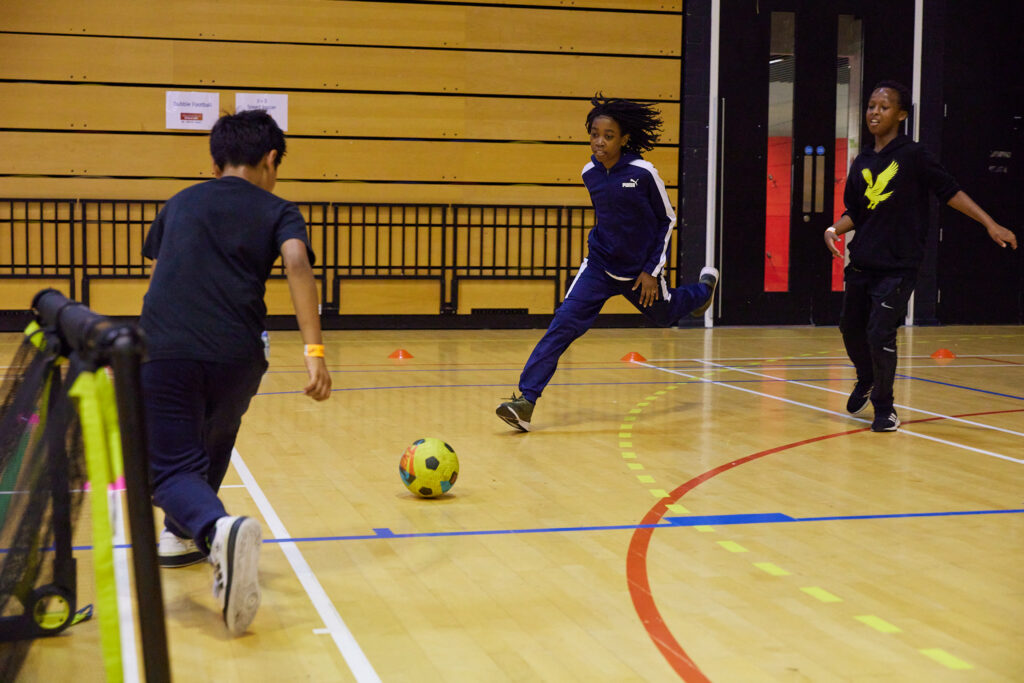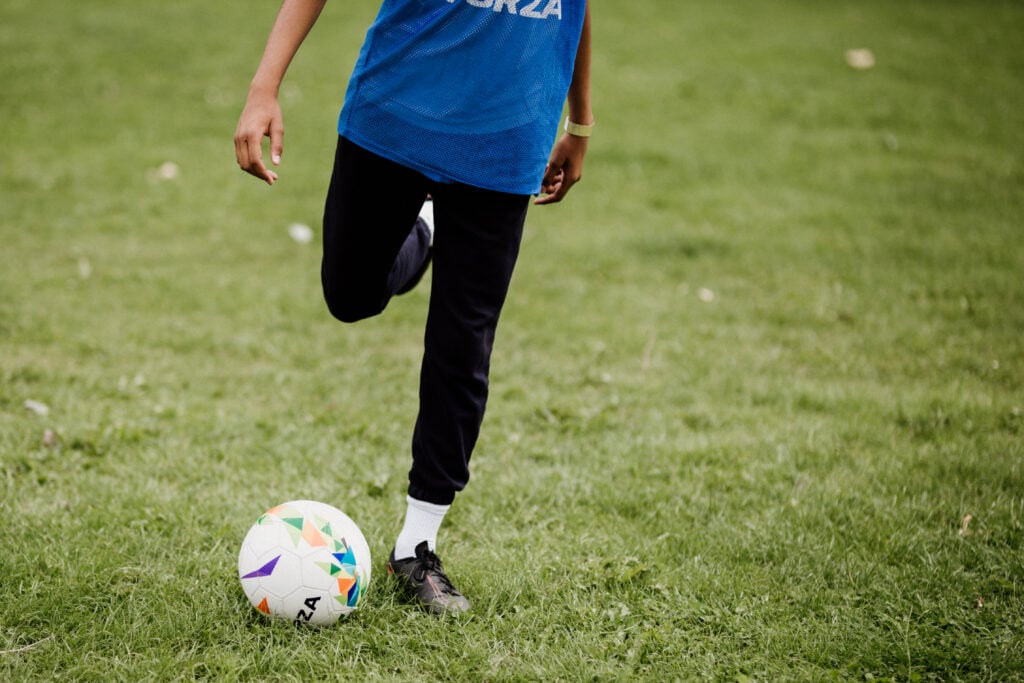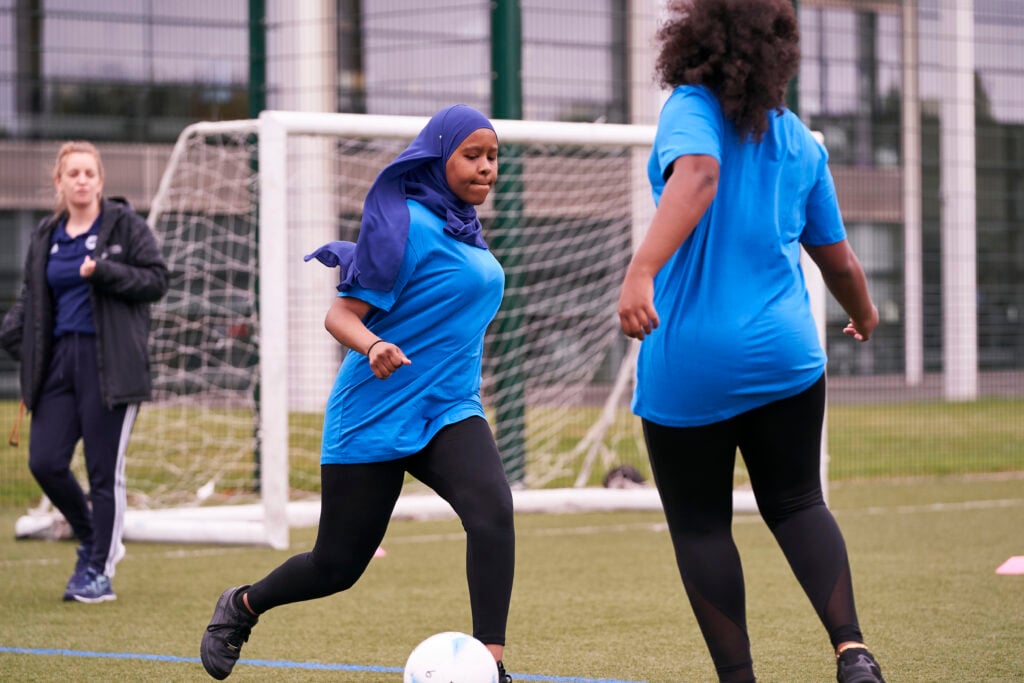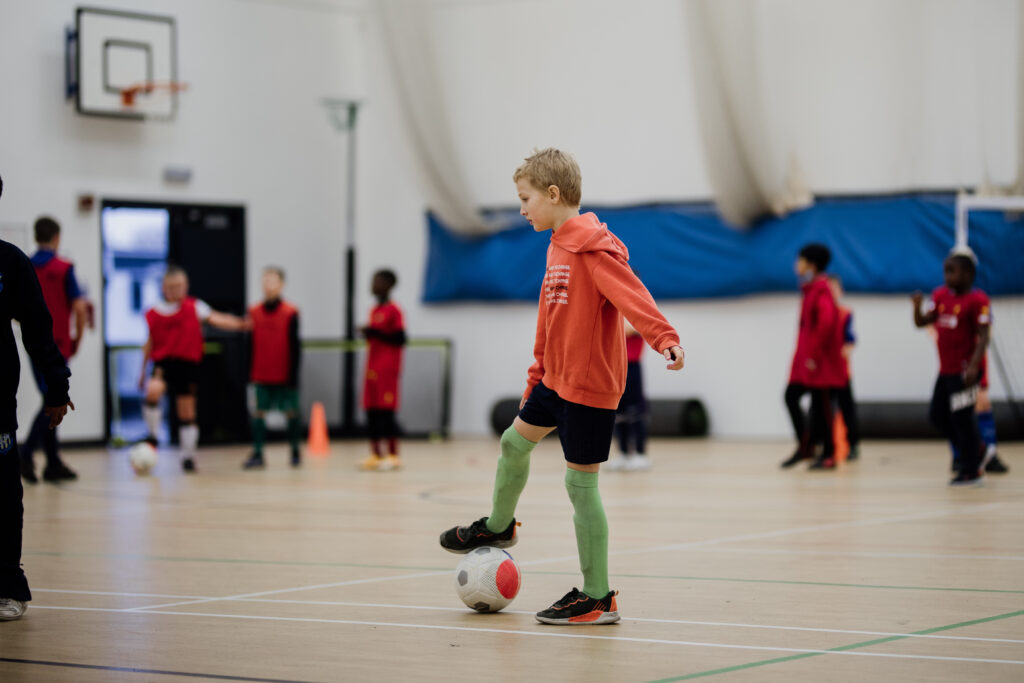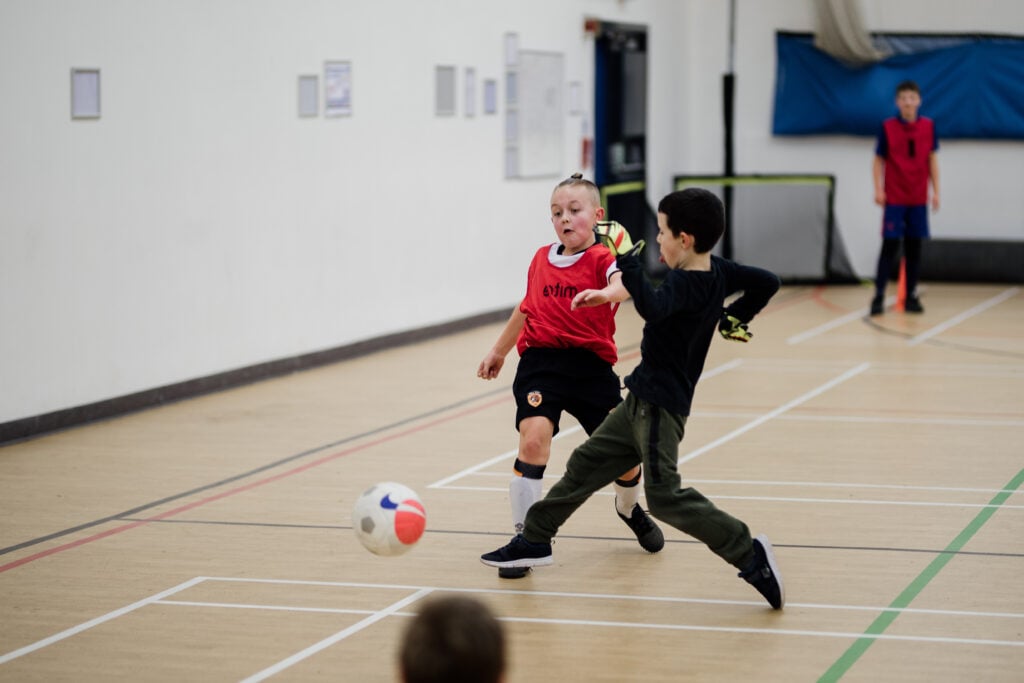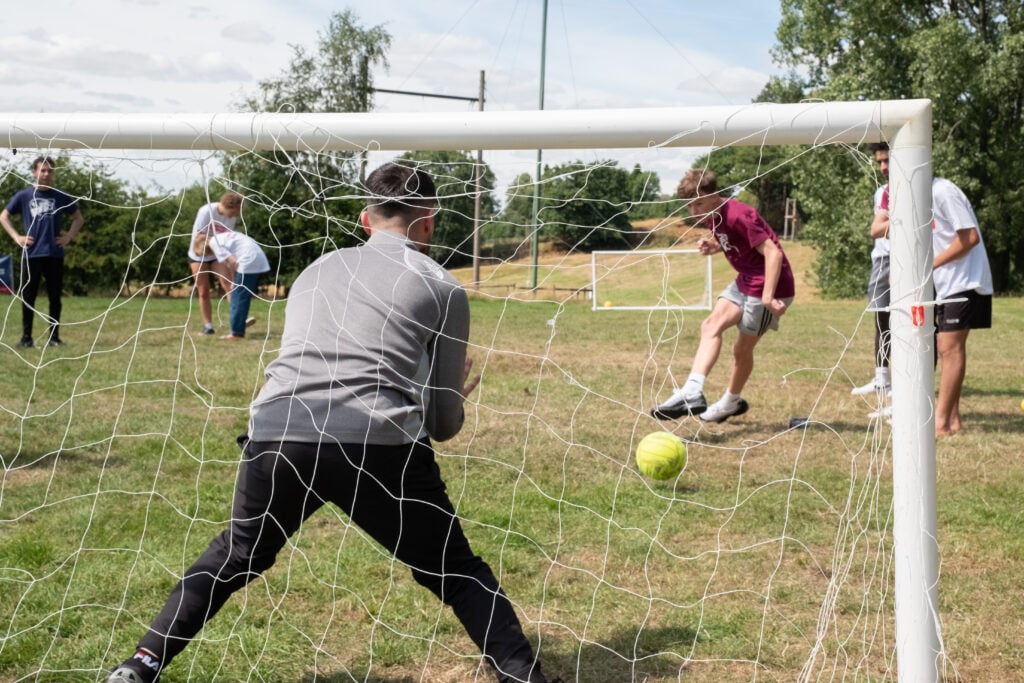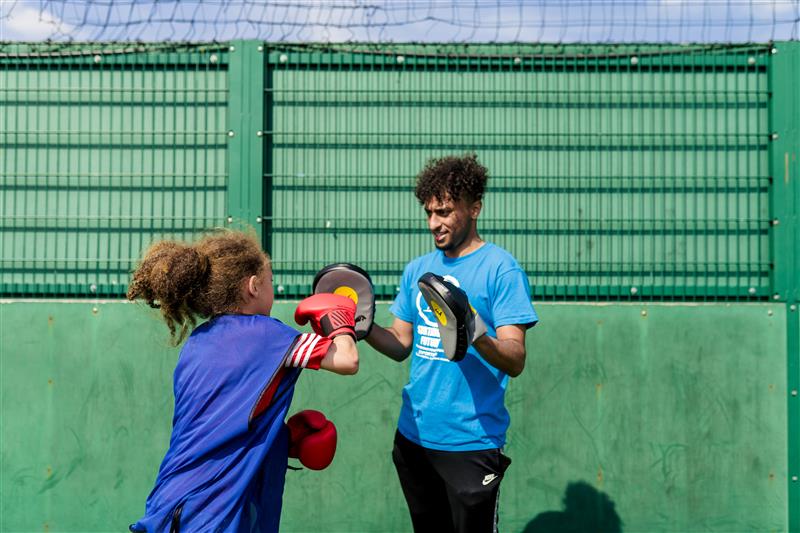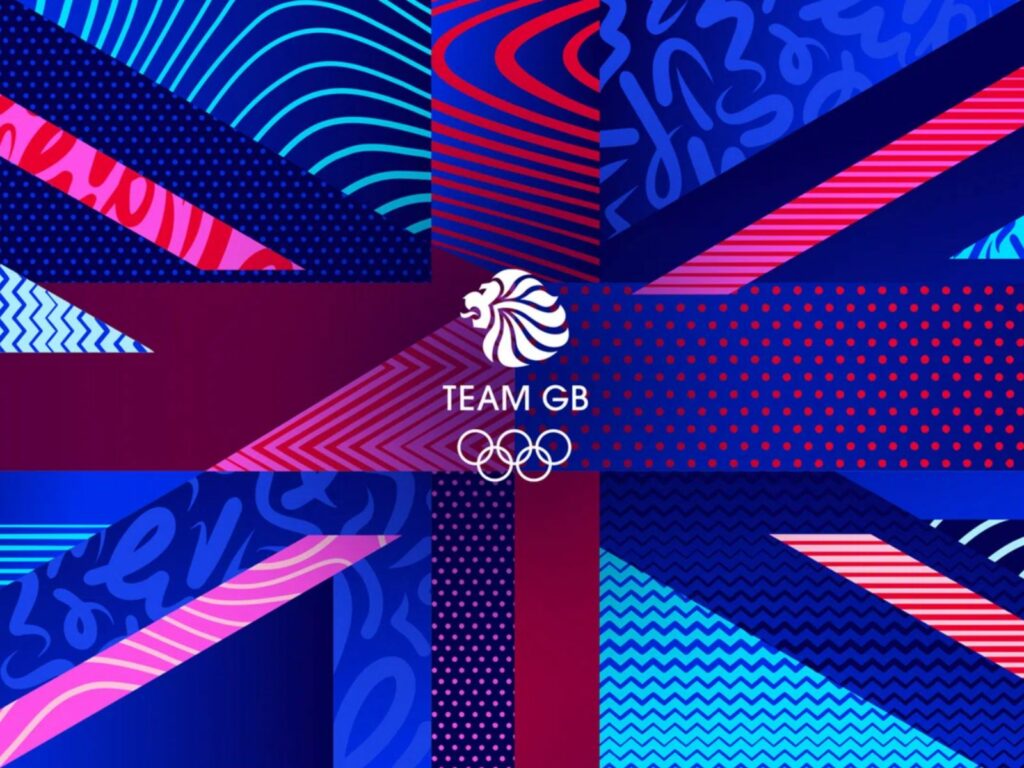National Sector Partner Group Pledge Launch
National Sector Partner Group Pledge Launch
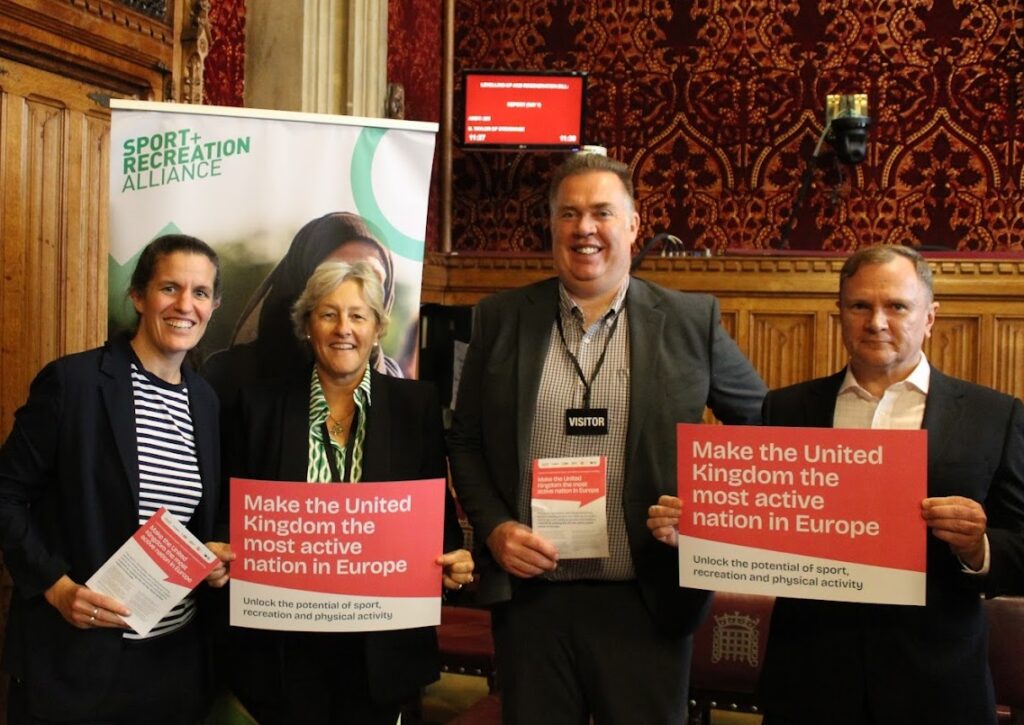
The UK lags behind European neighbours on activity as sector bodies unite in drive to make the UK the most active nation in Europe.
- The UK currently ranks joint 12th out of 15 comparable European nations for levels of physical activity
- Community sport, recreation and physical activity currently saves the NHS £9.5 billion every year by preventing illness
- Today, Parliamentarians from leading bodies across the sport, recreation and physical activity sector are launching a new pledge to make the UK the most physically active nation in Europe.
The leading bodies for the sport, recreation and physical activity sector have today (13 September) made an urgent call to the main political parties and their leaders to pledge to make the UK the most active nation in Europe.
The latest evidence from the Sport and Recreation Alliance [insert link] shows that the UK ranks joint 12th out of 15 comparable European nations for levels of physical activity. The UK is also ranked as the third highest spender on healthcare costs caused by inactivity and only 9th in overall wellbeing.
Today’s call builds on the July 2022 report, Unlocking the Potential, published by the group, which is made up of Active Partnerships, the Local Government Association, the Chartered Institute for the Management of Sport and Physical Activity, the Sport for Development Coalition, the Sport and Recreation Alliance, ukactive, and the Youth Sport Trust.
The report highlights a number of potential policy interventions that could provide the conditions for the sector to grow. These include:
- Deeper collaboration between Government departments, agencies and the sector
- Development of a strong and consistent evidence base for importance of physical activity
- More and better targeted investment
- Bold and ambitious policy reform.
This morning, Parliamentarians from across the House joined representatives from the group to launch a new pledge to make the UK the most physically active nation in Europe.
The pledge highlights that community sport, recreation and physical activity currently saves the NHS £9.5 billion every year by preventing illness and generates £85 billion annually in economic value.
However, the value generated by the sector could be far greater if the UK can reach the activity levels of its European peers and work towards the group’s ambition of making the UK the most active nation in Europe.
The sector bodies project savings of up to £1 billion in healthcare spending linked to inactivity, alongside the generation of an additional £3.6 billion per annum in GDP uplift through increased productivity and realising up to £77.2 billion in increased wellbeing benefits.
They are calling for a new partnership with the Government – both now and in the future – that unlocks the potential of sport, recreation and physical activity, and builds a future where:
- All children and adults are given the best chance to live well for longer
- Communities are safer, greener, healthier, and more connected
- Prevention leads to significantly less pressure on the NHS and other key public services
- Our economy is boosted by a healthier and more productive workforce.
Mark Lawrie, Chief Executive of StreetGames and co-Chair of the Coalition’s Policy Working Group said:
“Sport and physical activity are central to the ability of Coalition member organisations to change lives for the better, and have a fundamental role to play in building a healthier, happier and more prosperous nation. This is more important than ever during a cost-of-living crisis, and we therefore wholly endorse and support the ambition set out in this pledge.”
Commenting at the launch, Huw Edwards, CEO of ukactive said:
“There is a collective determination across the sport, recreation, and physical activity sector to ensure that its full potential is unlocked in order to make the urgent improvements to our national health and wellbeing. As we enter the countdown to the next General Election, we want each of the main political parties to meet our ambition and commit to this pledge.
“This pledge is a first step in recognising the impact of physical activity on our health and wellbeing, and in turn on the productivity of this country. Now we need Parliamentarians from across the House to drive this agenda forward, working closely with the entire sector to create a healthier, happier, and more prosperous nation.”
Baroness Tanni Grey-Thompson, who sponsored the launch in Parliament, added:
“I fully support the work of this group to make it easier for people to play, move and be active in any way they choose – ensuring sport, recreation and physical activity is accessible and affordable for everyone. There is no denying the importance of physical activity, not only for all our wellbeing, but for the overall health and wealth of the nation.”
“The sector now needs further support from Govrnment and across Parliament to realise the ambition of making the UK the most active nation in Europe.”
